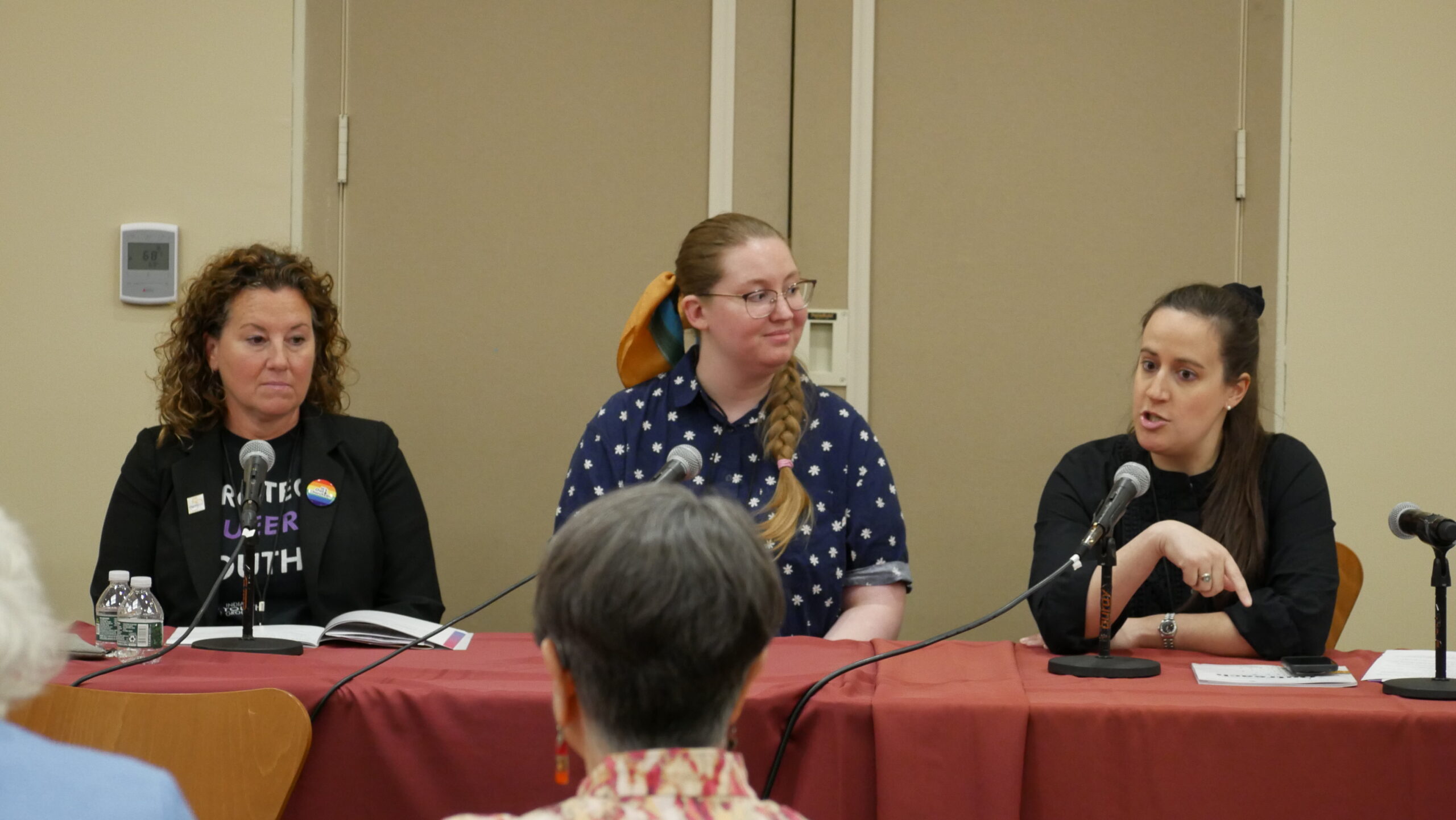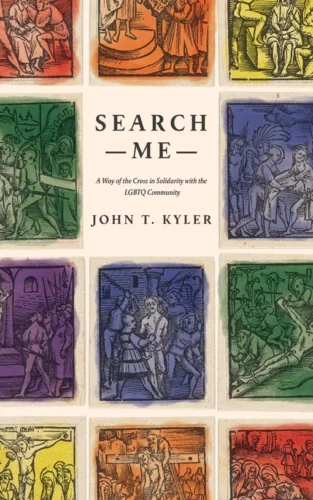Think about the largest group of lesbians you’ve ever been in, that is, a room of majority queer femme women. If you asked me this before June 16, I would have probably said the West Village’s Henrietta Hudson, one of the few lesbian bars left in the country. Now, I would have to include the Catholic lesbian panel at this year’s Outreach LGBTQ Catholic Ministry Conference.
I had the opportunity to work at the conference, held at Fordham University, last month. I attended many panels throughout the (long) weekend, and they all covered extremely important topics with extraordinary grace, but I found the Catholic lesbian panel to be the hidden gem of the conference.
I didn’t expect this panel to be so empowering and affirming, with so many people sharing such raw stories and unbridled faith—and I certainly wasn’t the only one who felt this way. The moderator, Marianne Palacios, opened discourse with the topic of the word “lesbian” itself and how some people don’t identify with that word and prefer “queer” as a more encompassing umbrella term.
“I am so thoroughly convinced of God’s love for me, that I refuse to leave because I need everyone else to know that God loves them, too.”
The other two panelists, Emma Cieslik and Shelly Fitzgerald, continued the conversation by introducing themselves. The panelists spoke about the harmful effects of purity culture, the experience of being queer in Catholic school administration and how Mary is an especially helpful role model.
One theme of the panel was why people stay in the faith when it seems to be pushing them out. “I don’t feel like I belong in the church and I’m going to continue to fight so that I can have that place,” Fitzgerald said. “ I want to be a person that continues to be able to fight for people who want to be a part of the church, [even if] they don’t feel like they have the strength or the desire to fight anymore.”
Palacios explained, “I am so thoroughly convinced of God’s love for me, that I refuse to leave because I need everyone else to know that God loves them, too, and that our faith is a gift.”
Audience members asked serious questions about theology and pragmatic life for lesbian Catholics. There was genuine, heartfelt discourse, all with the undercurrent of love and acceptance that can so often be missing from conversations about being lesbian in Catholic spaces.
This is a ministry of acceptance and of struggle, but I think we forget that it is also a ministry of joy. The panelists and the attendees discussed heavy topics, like being disowned by Catholic parents, getting fired from Catholic schools and all sorts of harm done in the name of Catholicism for the crime of being themselves. But there was also a lot of laughter—and a lot of jokes. There was also a lot of relief that there were finally other people with the same experiences, the same commitment to a faith that doesn’t always seem committed to them.
There was genuine, heartfelt discourse, all with the undercurrent of love and acceptance that can so often be missing from conversations about being lesbian in Catholic spaces.
The conference also addressed the persistent lack of racial and transgender diversity. In New York City, there are dozens of gay bars but only three lesbian bars. And within the lesbian and queer femme spaces, it is often white, cisgender voices that are amplified. This phenomenon is seen when talking about the queer Catholic experience as well.
The room was majority white women, and majority cisgender. In a world where queer women of color and particularly trans women of color experience violence at much higher rates than their counterparts, those voices need to be sought out, amplified, and most importantly, protected.
Cieslik spoke with me about her work with Queer and Catholic History, an oral history project documenting the voices of individuals whose experiences aren’t represented in the written record, both due to marginalization within their own communities, as well as neglect and erasure within historical records.
“Our intention was focusing not only on this cis, heterosexual, male, queer Catholic experience, which is incredibly valid and important, but also talking about racial diversity within queer Catholic communities, and also how race is part of experiencing a queer Catholic identity,” Cieslik said.
My experience, in this wonderful room full of several generations of lesbians, was to see how healing and helpful this ministry is, and just how necessary.
My experience, in this wonderful room full of several generations of lesbians, was to see how healing and helpful this ministry is, and just how necessary. It’s hard to be queer and female and Catholic, but for the 90 minutes of this panel, people were able to put down the burden and just be themselves.
“For so many of us who have been hurt by the church in these ways, to be able to share that and to receive the obvious love that we have received is very healing,” Fitzgerald said. “I hope that there continue to be places like that where we can … share our stories and feel love in that environment through all of the pain.”




